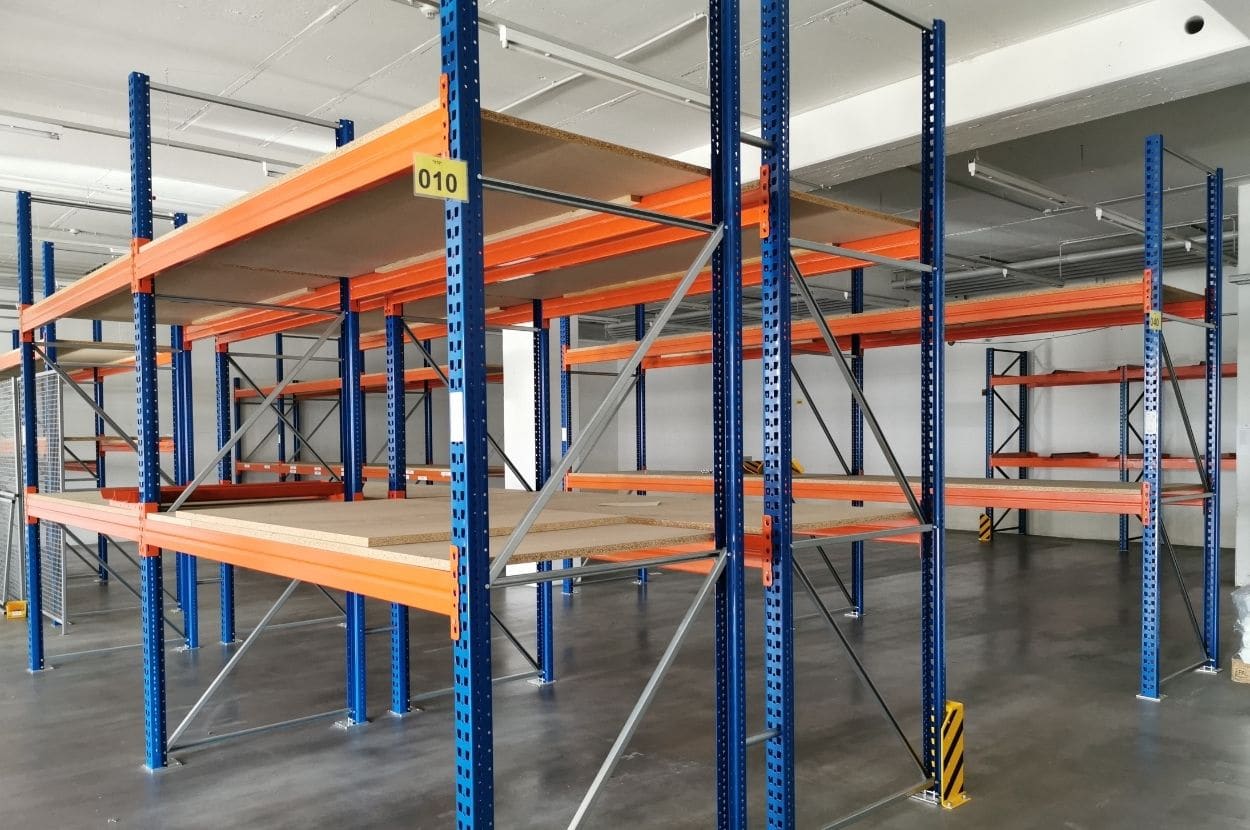When it comes to your pallet rack decking possibilities, your warehouse has several choices to pick from. Each one comes with its own benefits and disadvantages depending on what you plan to store on them. Consider the applications of each and refer to a guide to pallet rack decking options to know which is best for your workspace.
Wire Racks
Wire racks are the most basic and common of all pallet decking option. They balance versatility, durability, affordability, and safety. The racking cross beams have an extra support channel for extra durability, and the whole system is compliant with fire safety regulations. If a fire were to start on one of the racks, water could easily flow through the mesh.
Disadvantages of Wire Racks
While wire systems do offer affordability, they lack durability with heavier objects. Wire racks typically have a weight limit of roughly 1,000 pounds, and anything over that weight runs the risk of collapse.
Solid Steel
Arguably the most durable and strongest of all pallet rack solid decking options, steel racks offer immense strength for holding vast amounts of weight. Solid steel racks don’t feature holes in their design, which means they can contain spillage from containers holding liquids without them ruining other products.
Disadvantages To Solid Steel Racks
While many designs have it so no liquids can spread from one level to another, this same aspect serves as a hindrance to fire suppressant attempts with water. The water will collect in the racks and will have a difficult time quelling fires that are growing out of control.
Perforated
This type of decking offers many of the same strengths as solid steel but comes with the added benefit of having holes in its construction. This perforation allows water to flow through so that the racking system complies more with fire safety regulations than its solid steel counterpart.
Disadvantages To Perforated Racking
The holes can come in a variety of different sizes, and depending on what you need, they may serve as snagging hazards to loose materials such as fabric. The perforation also reduces the strength compared to solid steel racks, but that comes with the benefit of fire safety.
Know Your Needs
Don’t invest in racks that are inadequate for your needs or ones that are far more than what is called for. Racks that are too weak risk collapse, while ones that are too strong will just be money wasted on the strength you aren’t utilizing. Know what your materials call for and tailor your racks to what flows in and out of your warehouse.






